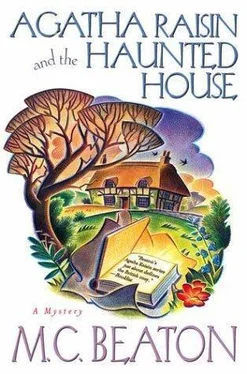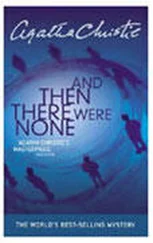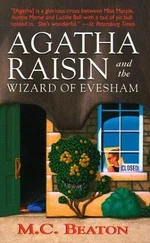
M C Beaton
Agatha Raisin and the Haunted House
Book 14 in the Agatha Raisin series, 2003
For Edwina Mori,
˜with love˜
FOOT-AND-MOUTH disease had closed down the countryside. Country walks and farm gates were padlocked. The spring was chilly and wet, with the first daffodils hanging their yellow heads under torrents of rain.
The thatch on Agatha Raisin’s cottage dripped mournfully. She sat on the kitchen floor with her cats and wondered what to do to ward off a familiar feeling of approaching boredom. With boredom came nervous depression, as she well knew.
An interesting-looking man had moved into the cottage next door, formerly owned by her ex-husband, James, but interest in any man at all had died in Agatha’s bosom. She had not joined the other village ladies in taking around cakes or homemade jam. Nor had she heard any of the gossip because she had just returned from London where, in her capacity as free-lance public relations officer, she had been helping to launch a new fashion line for young people called Mr. Harry. All it had served to do was make middle-aged Agatha feel old. Some of the skinny models-heroin-chic was still the fashion-had made her feel fatter and older. Her conscience had disturbed her because she knew the clothes were made in Taiwan out of the cheapest material and guaranteed to fall apart at the seams if worn for very long.
She got to her feet and went upstairs to her bedroom and studied herself in a full-length mirror. A stocky middle-aged woman with good legs, shiny brown hair, and small bearlike eyes stared back at her.
Action, she said to herself. She would put on make-up and go and see her friend Mrs. Bloxby, the vicar’s wife, and catch up on the village gossip. Agatha put on a foundation base of pale make-up, reflecting that it was not so long ago when bronzed skin had been all the rage. Now that the unfashionable could afford to go abroad in the middle of winter, it was no longer smart to sport a tan or even to wear brownish make-up. She plucked nervously at the skin under her chin. Was it getting loose? She slapped herself under the chin sixty times and then was cross to see a red flush on her neck.
She changed out of the old trousers and sweater she had put on that morning and changed into a biscuit-coloured linen suit over a gold silk blouse. Not that this sudden desire to dress up had anything to do with the new tenant in the cottage next door, she told herself. At least, as the cliché went, time was a great healer. She hardly ever thought of James now and had given up any hope of seeing him again.
Downstairs again, she shrugged into her Burberry and picked up a golf umbrella and went out into the pouring rain. Why on earth had she worn high heels? she wondered, as she picked her way round the puddles on Lilac Lane and headed for the vicarage.
Mrs. Bloxby, a gentle-faced woman with grey hair, opened the door of the vicarage to her. “Mrs. Raisin!” she cried. “When did you get back?”
“Last night,” said Agatha, reflecting that after London, the formal use of her second name sounded odd. But then the village ladies’ society of which Agatha was a member always addressed one another formally.
“Come in. Such dreadful weather. And this foot-and-mouth plague is frightening. Ramblers have been told not to walk the countryside, but they won’t listen. I really don’t think some of those ramblers even like the countryside.”
“Any foot-and-mouth around here yet?” asked Agatha, taking off her coat and hanging it on a peg in the hall.
“No, nothing round Carsely…yet.”
She led the way into the sitting-room and Agatha followed. Agatha sank down into the feather cushions on the old sofa, took off her shoes and stretched her wet stockinged feet out to the fire.
“I’ll lend you a pair of wellingtons when you leave,” said Mrs. Bloxby. “I’ll get some coffee.”
Agatha leaned back and closed her eyes as Mrs. Bloxby went off to the kitchen. It suddenly felt good to be back.
Mrs. Bloxby came back with a tray with mugs of coffee.
“What’s the gossip?” asked Agatha.
“Er…James was here when you were away.”
Agatha sat bolt upright. “Where is he now?”
“I’m afraid I don’t know. He only stayed for an afternoon. He said he was travelling abroad.”
“Rats!” said Agatha gloomily, all the old pain flooding back. “Did you tell him where I was?”
“Yes, I did,” said the vicar’s wife awkwardly. “I told him where you were living in London and gave him your phone number.”
“He didn’t call,” said Agatha miserably.
“He did seem in a bit of a rush. He sent his love.”
“That’s a joke,” said Agatha bitterly.
“Now drink your coffee. I know it’s early, but would you like something stronger?”
“I don’t want to start down that road, especially for a creep like James,” said Agatha.
“Have you met your new neighbour?”
“No. I saw him when he moved in, I mean from a distance, but then I got the chance of this PR job and took off for London. What’s he like?”
“Seems pleasant and clever.”
“What does he do?”
“He works in computers. Free-lance. He’s just finished a big contract. He says he’s glad it’s over. He was commuting to Milton Keynes and back every day.”
“That’s a long haul. No murders?”
“No, Mrs. Raisin. I should think you’ve had enough of those. There is a small mystery, however.”
“What’s that?”
“Alf was recently asked to perform an exorcism, but he refused.” Alf was the vicar. “Alf says he only believes in the divine spirit and no other kind.”
“Where’s the ghost?”
“It’s a haunted house in Hebberdon-you know, that tiny village the other side of Ancombe. It belongs to an old lady, a Mrs. Witherspoon, a widow. She has heard strange voices and seen lights in the night. Alf has put it down to the village children playing tricks on the old lady and has suggested she call in the police. She did that, but they couldn’t find anything. But Mrs. Witherspoon sticks to her story that she is being haunted. So, do you want to investigate?”
Agatha sat for a moment and then said, “No. I think Alf ’s probably right. You know, sitting here I’ve decided to stop rushing around, finding things to ward off boredom. Time I broke the pattern. I’m going to become domesticated.”
Mrs. Bloxby looked at her uneasily.
“You? Do you think that’s a good idea?”
“The garden’s full of weeds and this rain can’t go on forever. I’m going to potter about and do a bit of gardening.”
“You’ll get fed up soon.”
“You don’t know me,” said Agatha sharply.
“Possibly not. When did you make this decision?”
Agatha gave a reluctant grin. “Five minutes ago.”
Her stubborn pride kept her from revealing that James’s visit and the fact that he had not tried to contact her had hurt her deeply.
As the wet spring finally dried up, it did indeed look as if Agatha Raisin had settled into domesticity at last. Tired of lazy gardeners, she had decided to do the work herself and found it alleviated the pain she still felt over James. The ladies of the village of Carsely informed Agatha that her neighbour, Paul Chatterton, was a charming man but not at all sociable. For a moment, Agatha’s competitive instincts were aroused, but then she thought dismally that men meant pain and complications. They were best left alone.
She was sprawled in a deck-chair in her garden one sunny day, covered in a careful application of sunblock and with her two cats, Hodge and Boswell, at her feet, when a tentative voice said, “Hullo.”
Читать дальше













